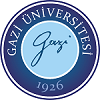
Send us your opinions, requests and evaluations.
Students are required to comply with academic honesty and meet the needs of the Honor Code. Academic dishonesty means cheating, cheating attempts, plagiarizing, fabricating information or references, facilitating acts of dishonesty by others, having unauthorized possession of examinations, submitting the work of another person, copying parts of the academic work of other students or any similar activities related to student work. Any kind of academic dishonesty is an act of violating academic regulations and becomes the reason for a disciplinary action and also may be the reason for failing an assignment or a course.
For your safety, please make sure that you follow these steps:
Do not share your password with anyone and always log out when you are finished using the platforms for online education. Change your password if you think someone else might know it.
All content (image, video and etc.) shared within this community reflects acceptable academic standards and is confidential. You are expected to use discretion accordingly.
Contents in all materials made available on the course pages or sent to students via different means for course purposes (i.e. writing, audio, picture, image, photograph, video) belong to the relevant copyright owners, and are protected under the Law on Intellectual and Artistic Works, Commercial Law, Civil Law, Code of Obligations, Law on the Protection of Personal Data, Turkish Criminal Law, and other special laws. Infringers shall be concurrently subject to disciplinary, legal, and penal sanctions as per both the relevant legislations and school disciplinary law.
Be careful with plagiarism and copyright. Always give accurate and appropriate credit when you use someone else’s words and ideas. For more and detailed information, please read the official statement of our university:

Send us your opinions, requests and evaluations.